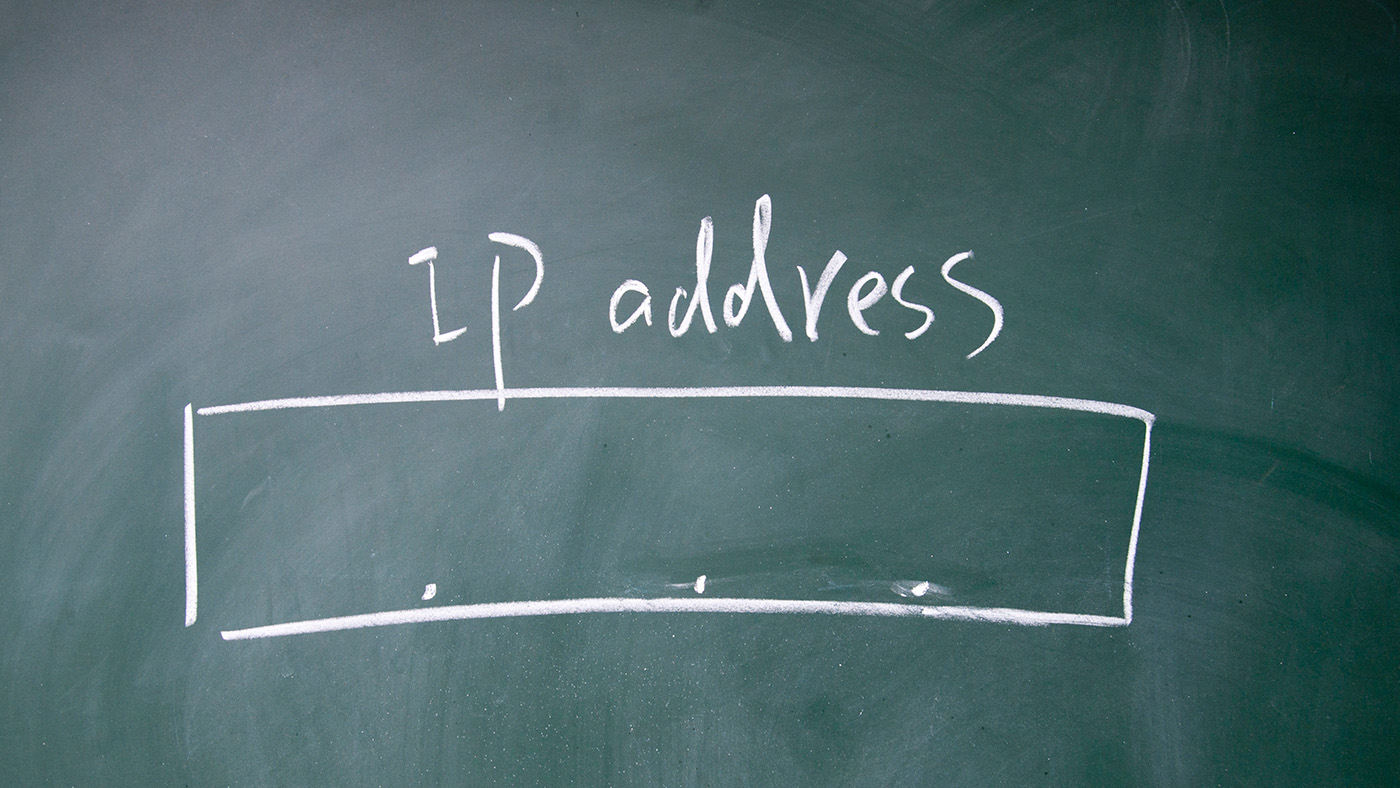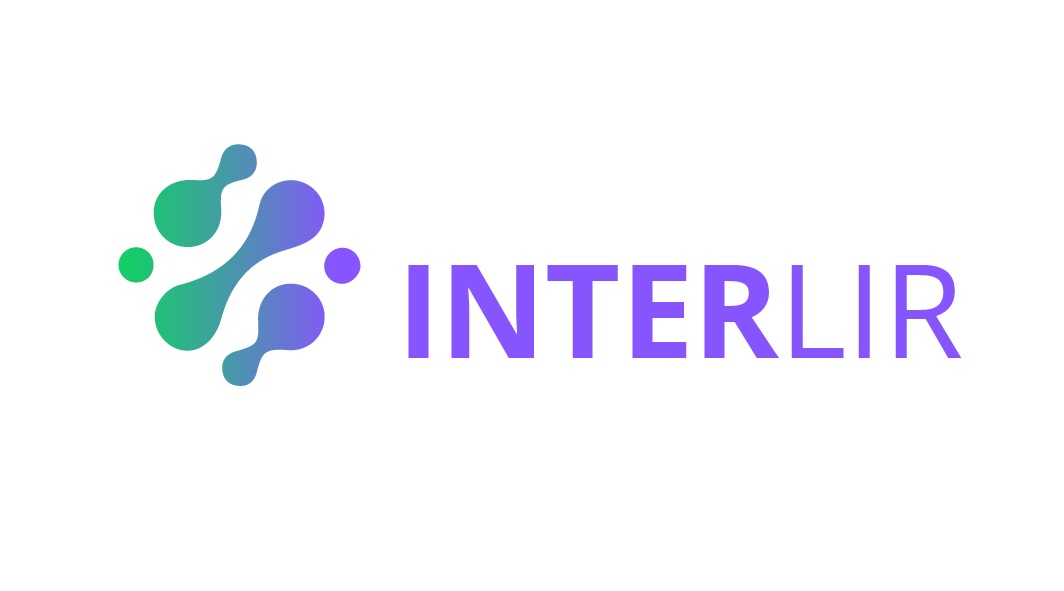Tokenization of the Internet Address Space
Alexey Shkittin, CEO of InterLIR, and Alexander Timokhin, COO, propose transitioning from a hierarchical to a decentralized IP registry system using blockchain technology.

© Cemile Bingol | istockphoto.com
Background
The resources discussed here include IPv4 and IPv6 addresses, autonomous systems, and data protocols.
Currently, there is a registry of IPv4 addresses that contains 4.3 billion entries, each of which is a 32-bit number written as a binary code, for example 255.255.255.255. This protocol is the most common one on the Internet. There is also the less widespread, but gradually developing protocol IPv6 which contains 2128 addresses in 128-bit format.
Currently, all numbered resources are distributed centrally through ICANN and its regional resellers, Regional Internet Registries (RIRs), which, in turn, distribute resources through Local Internet Registries (LIRs) to end-users. The domain name system functions in a similar manner.
This mechanism is largely historical, as the primary allocation was from one point, from one registrar. The modern system of maintaining registries of numbered Internet resources involves a clear hierarchy in which the distribution takes place from the Internet Assigned Numbers Authority (IANA) to the end user.
Such centralization of the management of the number resource register places natural limitations on the prospects for developing the Internet as a dynamic and flexible system, as many decision-makers intervene in the distribution process and attempt to bureaucratically regulate the allocation and management of Internet resources.
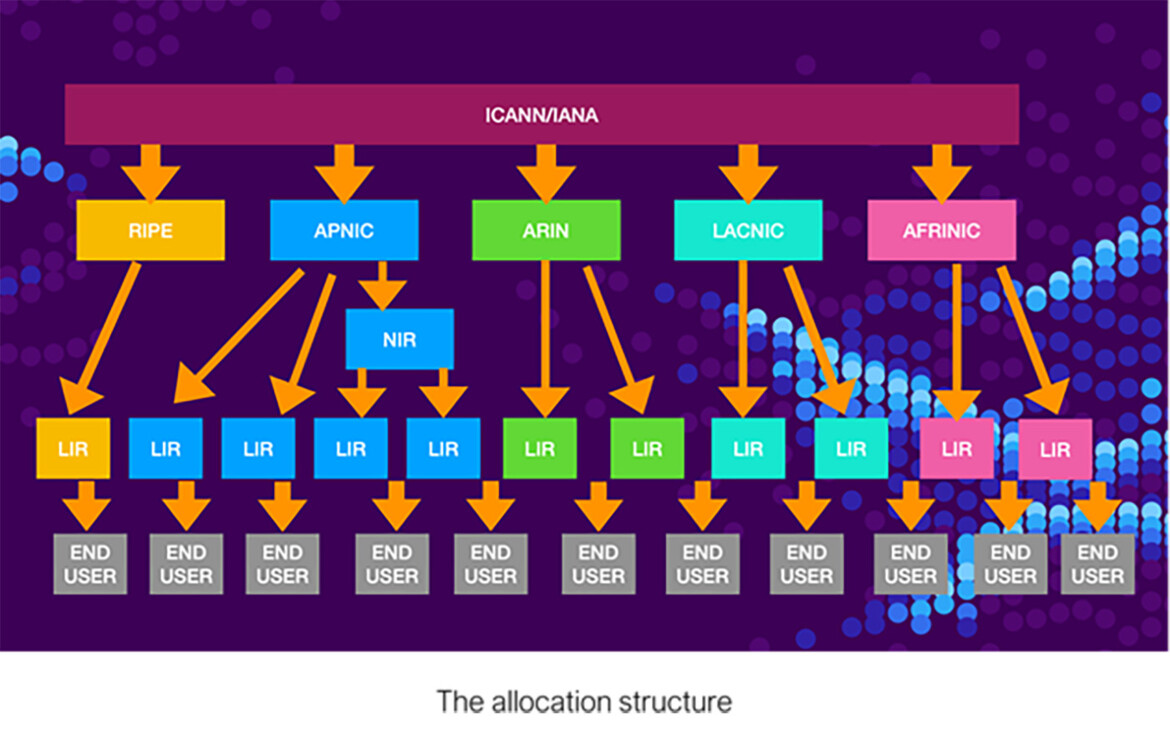
The current arrangement provides clear preconditions for the fragmentation and sovereignization of the Internet, with the consequent isolation of users from the global world network and individual information flows. National registries have already emerged in a number of regional structures and sovereign registries are being tested in some countries.
From our point of view, the whole structure needs to be reviewed in the direction of decentralization and democratization.
The basic concept: Using blockchain technology
In this article, we will consider the possibility of creating a distributed registry of Internet resources based on NFT blockchain technology. The data structure of such a registry will be identical to the existing registries of number resources of IP addresses, but will have all the advantages that blockchain provides. In the future, this registry could be extended to autonomous systems, routing tables, and domain names.
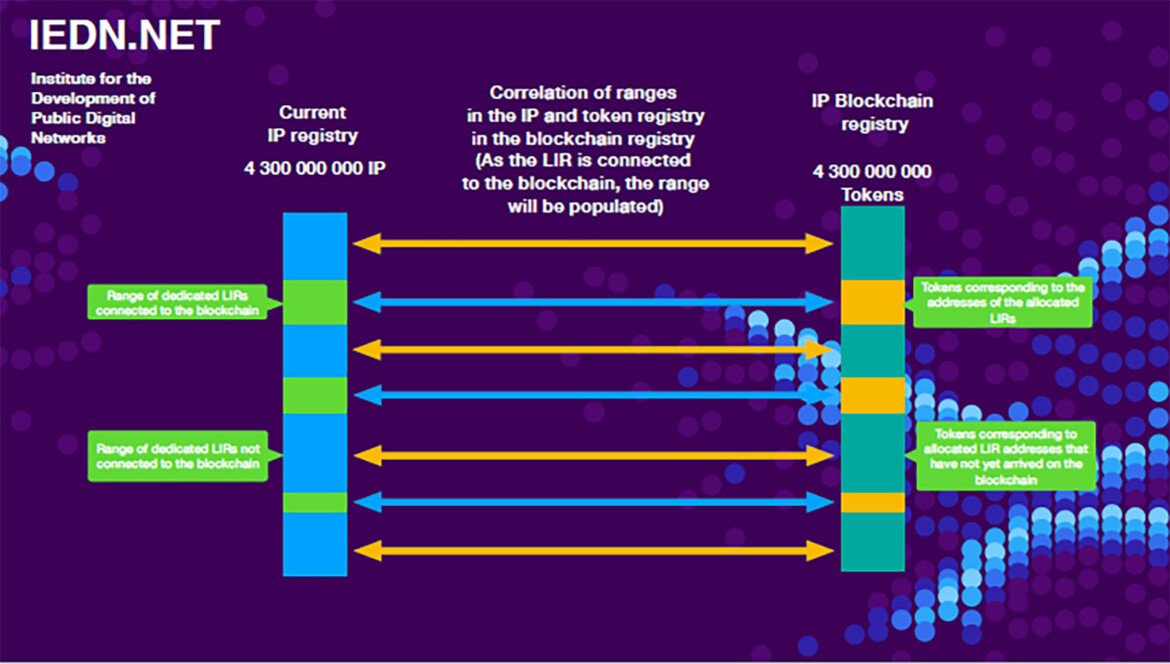
The process of creating and populating a blockchain register corresponding to the existing IPv4 registry (Developed by IEDN)
The basic idea is to transform an IPv4-based registry into a blockchain-based registry. To do this, we propose creating 4.3 billion entries in the form of NFT tokens, each corresponding to one IP address of the IPv4 protocol. In this way, we will create a new blockchain protocol IPvX.
The following model is proposed for the dissemination of this technology. Each local registry can receive, in line with the range of IP addresses they have under management, a similar number of tokens in the blockchain corresponding to the addresses the registry has.
The use of tokens will allow for activities such as the sale, lease, or temporary transfer of rights, etc. The tokens held by the end users confirm their ownership of the corresponding IP address, a registry of which is maintained by the local registry. The transfer of ownership can be described in the form of a smart contract. Also, all other activities with IP address tokens can be defined in smart contracts whose validity is confirmed by a blockchain arbitrator. The arbitrators in this design could be just the LIRs acting as registry managers within the range of IP addresses available to them.
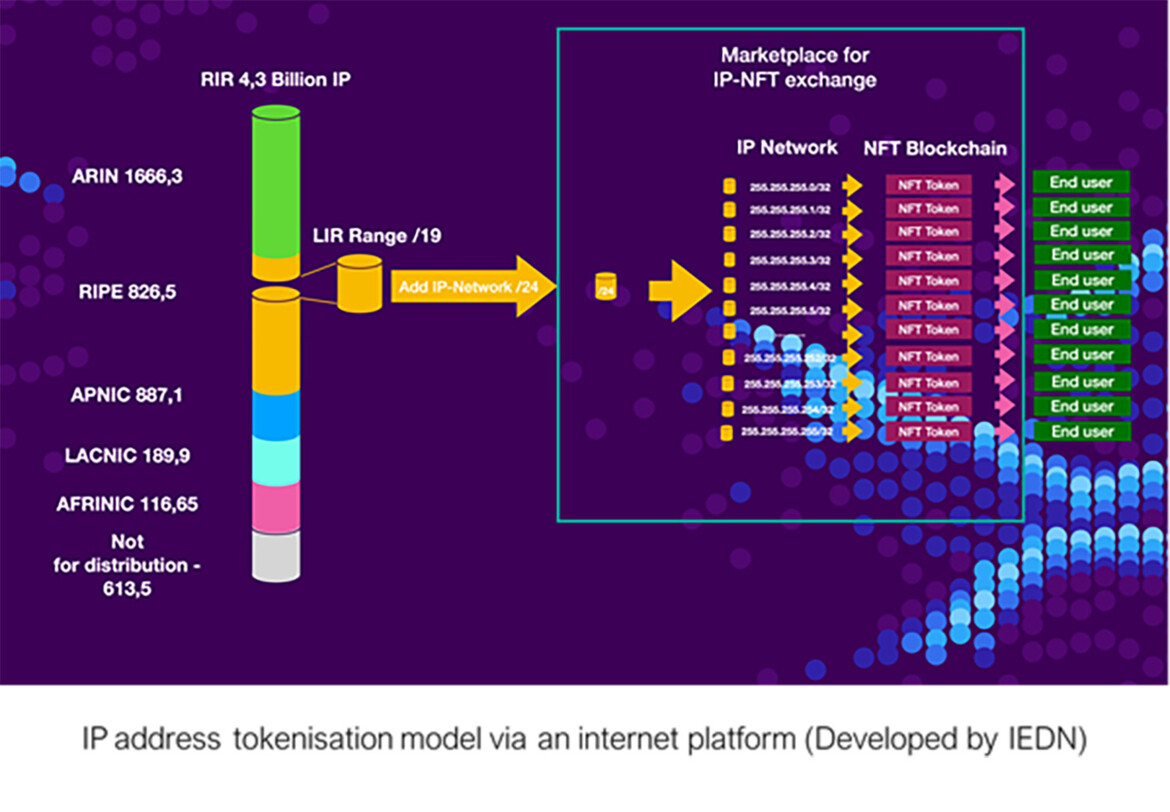
Benefits of a blockchain register
Here are the primary benefits of moving to a blockchain-based registry:
1. Decentralization: Blockchain enables decentralized storage and processing by distributing information about the state of the IP registry to all participants. As long as at least one computer is running, the information about the state of the registry is active. With the current design, the registry is only maintained by ICANN and RIR servers, which is not enough for the system to be considered decentralized.
2. Security: The existing system is not protected from unscrupulous users, unlike blockchain system based on encryption and mathematical calculations, and does not depend on subjective actions of a user. Blockchain is not just a distributed database; it is, first and foremost, a distributed supercomputer. Once created in the network, smart contracts are no longer subject to change (unless a new version of the contract is released) and work without human intervention.
3. Transparency and Anonymity: All IP management rights are visible to all participants while respecting the principle of anonymity.
4. Trustworthiness: Information cannot be corrected, tampered with or deleted due to the fact that a huge number of devices control it. One of the basic principles of blockchain technology is Zero Trust; no one is a trustee with rights until a key has been submitted and multiple validators have verified the blockchain signature chain.
5. Self-sufficiency: There is no centralized management and no need for intermediaries like RIR, IANA and other elements of the existing hierarchical system of management and resource allocation. Rudiments like Legacy and PI resources can be abandoned.
6. Resource saving: It allows the rational use of IP resources for specific needs and prevention of wasteful practices of their accumulation by individual entities.
7. Sharing: IP address transactions can come down to one specific IP address. The current registry only allows this to be done with groups of addresses, nets /24 of 256 addresses.
Expected results
What will it achieve? Firstly, a number of restrictions on IP transfers between owners will be removed, and secondly, a legal framework is created for a wide variety of transactions in the form of smart contracts with IP addresses. Thirdly, when users reach a fill rate of more than 50% of the NFT token blockchain register corresponding to the same number of IPs in the current registry, the question arises: Which registry is the true one?
There is a real possibility that users of the IP address space will switch to the blockchain registry, finding it to be more convenient and promising. Suppose the additional features associated with the porting of BGP routing and ASN registry processes are included in this blockchain. In that case, it can potentially become a new Internet registry for all existing users.
A further attraction of this model lies in the ease with which resources can be monetized in the form of NFT tokens and transactions in the form of smart contracts.
Down the road, an NFT blockchain registry could be created for IPv6. The scale of this project could then become truly colossal.
Alexey Shkittin is the CFO and co-founder of InterLIR and has more than 15 years of experience in the IT industry. He has founded several IT companies and he is considered to be one of leading experts on the IP networks market.
Alexander Timokhin is the Chief Operating Officer of InterLir. He is a graduate of Humboldt University Berlin, with work experience in European and International Affairs in Brussels.
The opinions expressed in Industry Insights published by dotmagazine are the author’s or interview partner’s own and do not necessarily reflect the view of the publisher, eco – Association of the Internet Industry.



